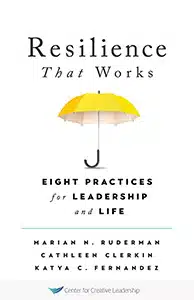The Answer to This Question Is Often Related to Work
“What keeps you up at night?” is a popular question to ask executives. We surveyed 384 leaders about this topic, and the respondents reported on their sleep quality, including the kinds of conditions, thoughts, and ailments that interfere with their sleep.
A significant portion of our leadership sample reported tossing and turning at night — nearly one in 3 said they have trouble sleeping at least a few nights a week. There are certain sleep disturbances that, although annoying, are considered a normal part of life: pets, children, snoring partners, and loud noises. Also not surprising, there were also a number of people who are kept awake by physiological problems — breathing issues, waking up to go to the bathroom, pain, restless leg syndrome, sleep apnea, and menopause.
How Work Keeps Us Up at Night
Through our research, we have found that troubles with sleeping often accompany issues at work. Here are 2 of the issues we saw frequently:
1. Work-Related Stress
People aren’t just taking work home with them. They’re also taking it to bed. Of those surveyed, one in 4 reported that work-related thoughts often interfere with their sleep. Work looms large in people’s minds, whether it’s going over past events or planning and worrying about upcoming tasks.
For many leaders, problems from the day resurface in the middle of the night. For example, one executive told us: “If I am trying to solve a complex problem, I tend to think about it constantly, including during sleep. If I briefly wake up, I might find it hard to shut that thinking off and get back to sleep.”
As much as possible, avoid rumination, the main cause of stress, to try to get more restful sleep.
2. Dissatisfaction With Work-Life Balance
When we probed deeper into how work-related issues disturb sleep, we found much of it had to do with how leaders experienced feeling out of “balance” between work and personal life. We found that unhappiness with how some people manage the transition between work and personal time is associated with sleep problems. For example, individuals who were more likely to feel like they’re always working, whether they were at work or not, were also more likely to have symptoms of insomnia and trouble sleeping.
This effect was present even when we accounted for lifestyle factors that we know can influence sleep quality, such as age, exercise, and even caffeine consumption. Being unable to unwind from work is a serious impediment to sleep. In turn, poor sleep can impair memory, learning, and emotion regulation, all of which can make psychological struggles even worse.
What Keeps You Up at Night: Implications of Sleep Loss
The findings of our research about sleep are striking and call for a reevaluation of how we view the dissolving boundaries between work and home.
While many may appreciate the greater workplace flexibility that new technology brings, the price for this fluidity can be disturbed sleep. This isn’t just due to the constant notifications and blue-light emitting screens from our mobile devices (all of which quite literally interrupt sleep), but also the ability of technology to keep work at the forefront of our minds. It means we’re prevented from “switching off,” not just physically, but psychologically and emotionally.
When work keeps us awake, we’re unable to get the rest and recovery necessary for effective leadership and psychological wellbeing. That, in turn, makes us tired at work, which is a roadblock to effective leadership.
Ready to Take the Next Step?
Don’t let work-related stress be what keeps you up at night. Help your team build resiliency habits that create conditions for peak performance with our resilience-building solutions, which will help them avoid burnout — and burn bright instead.










